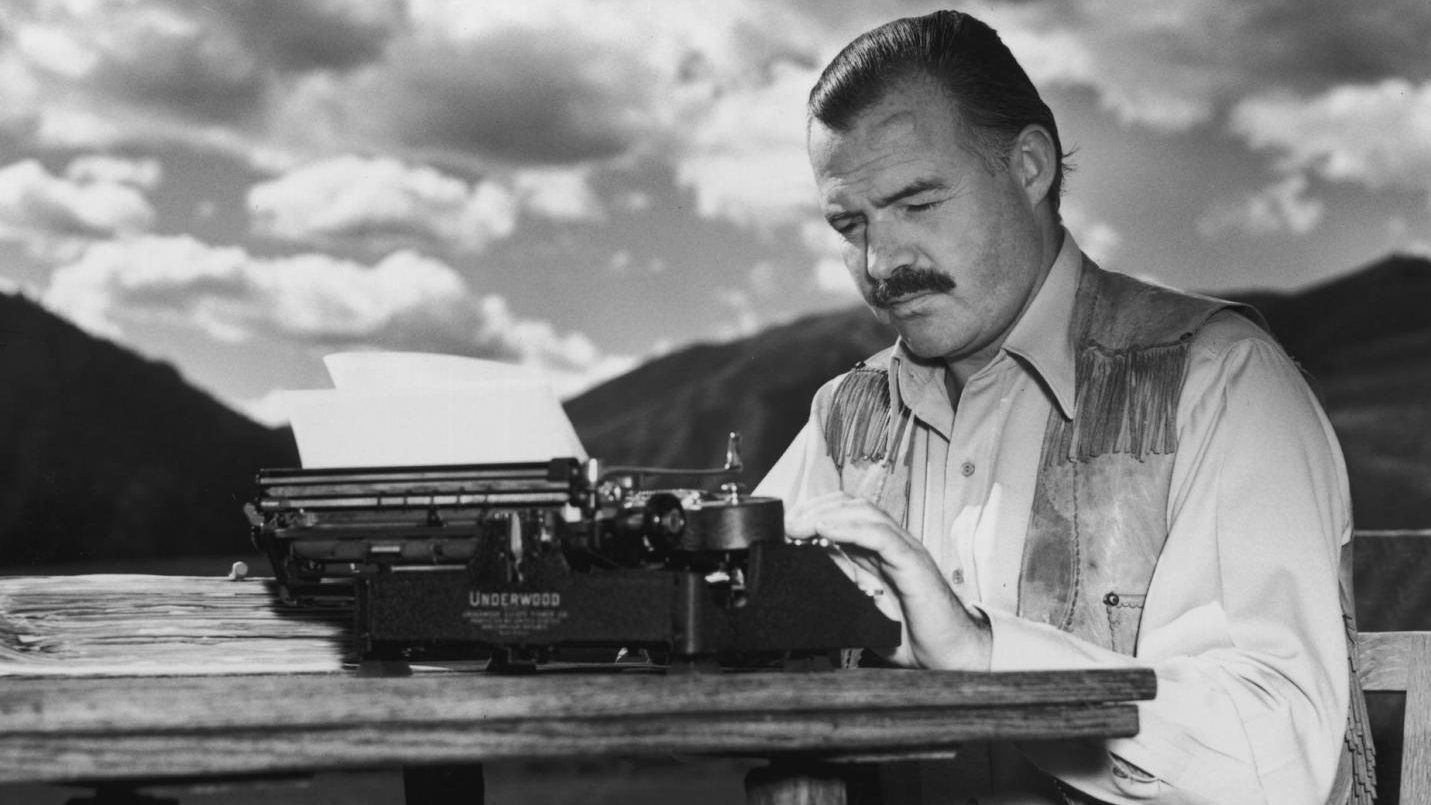

5 Ernest Hemingway passages every gentleman should know
62 years ago today, the American novelist was awarded the Nobel Prize for Literature
Words: Jonathan Wells
Bob Dylan isn’t the first person to ever question his winning the Nobel Prize for Literature.
62 years ago today, the prize was awarded to American novelist and journalist Ernest Hemingway. But, whilst the writer did modestly tell the Swedish institution that three of his contemporaries, journalist Carl Sandburg, Danish author Tania Blixen and art historian Bernard Berenson, deserved the prize over him – he took the money nonetheless.
Awarded to Hemingway “for his mastery of the art of narrative, most recently demonstrated in The Old Man and the Sea, and for the influence that he has exerted on contemporary style,” the prize was well deserved. With an economical and understated style, the writer reshaped masculinity in literature. Here are our pick of his passages.
In 1926, when The Sun Also Rises was published, it was hailed as the quintessential novel of the Lost Generation – of which 27-year old Hemingway was a part. This was one of the first times Hemingway’s blunt and clipped style came to the fore, as shown in this beautifully simple passage below.
“In the morning I walked down the Boulevard to the rue Soufflot for coffee and brioche. It was a fine morning. The horse-chestnut trees in the Luxembourg gardens were in bloom. There was the pleasant early-morning feeling of a hot day. I read the papers with the coffee and then smoked a cigarette. The flower-women were coming up from the market and arranging their daily stock. Students went by going up to the law school, or down to the Sorbonne. The Boulevard was busy with trams and people going to work.”
1932 saw the publication of Death in the Afternoon, a non-fiction book of Hemingway’s in which he outlines the traditions and ceremony of Spanish bullfighting. A contemplation on courage, the writer also touches upon his own writing style, rationalising it as below.
“If a writer of prose knows enough about what he is writing about, he may omit things that he knows and the reader, if the writer is writing truly enough, will have a feeling of those things as strongly as though the writer had stated them. The dignity of movement of an iceberg is due to only one-eighth of it being above water.”
In 1940, at the age of 41, Hemingway published For Whom the Bell Tolls, the story of a young American fighting in the Spanish Civil War. The novel is regarded as one of Hemingway’s best works.
“How little we know of what there is to know. I wish that I were going to live a long time instead of going to die today because I have learned much about life in these four days; more, I think than in all other time. I’d like to be an old man to really know. I wonder if you keep on learning or if there is only a certain amount each man can understand. I thought I knew so many things that I know nothing of. I wish there was more time.”
In 1951, Hemingway wrote a short novel in the Bahamas. The Old Man and the Sea was both awarded the Pulitzer Prize for Fiction and cited as the main reason the writer was awarded his Nobel Prize.
“He remembered the time he had hooked one of a pair of marlin. The male fish always let the female fish feed first and the hooked fish, the female, made a wild, panic-stricken, despairing fight that soon exhausted her, and all the time the male had stayed with her, crossing the line and circling with her on the surface.
He had stayed so close that the old man was afraid he would cut the line with his tail which was sharp as a scythe and almost of that size and shape. When the old man had gaffed her and clubbed her, holding the rapier bill with its sandpaper edge and clubbing her across the top of her head until her colour turned to a colour almost like the backing of mirrors, and then, with the boy’s aid, hoisted her aboard, the male fish had stayed by the side of the boat.
Then, while the old man was clearing the lines and preparing the harpoon, the male fish jumped high into the air beside the boat to see where the female was and then went down deep, his lavender wings, that were his pectoral fins, spread wide and all his wide lavender stripes showing. He was beautiful, the old man remembered, and he had stayed.”
In 1961, Hemingway committed suicide, which affords this last passage – from his earlier 1929 novel A Farewell to Arms – a particular poignancy.
“If people bring so much courage to this world the world has to kill them to break them, so of course it kills them. The world breaks every one and afterward many are strong at the broken places. But those that will not break it kills. It kills the very good and the very gentle and the very brave impartially. If you are none of these you can be sure it will kill you too but there will be no special hurry.”


